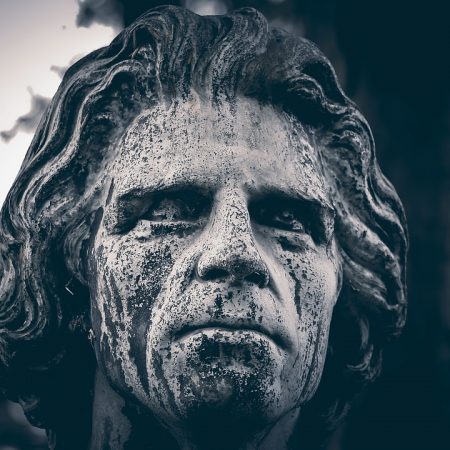
I have a tendency to do it wrong.
We all do.
Lately, I’ve been reading “The Reason for God” by Timothy Keller and he makes an astoundingly correct observation in that huge portions of what Jesus said in the four gospels are addressed to people who were doing this whole “religion” thing wrong.
Jesus spent a lot of time absolutely chewing out the scribes, the Herodians, the Saducees, and especially the Pharisees.
And what He was most upset about was how they got it absolutely wrong:
“Woe to you, teachers of the law and Pharisees, you hypocrites! You travel over land and sea to win a single convert, and when you have succeeded, you make them twice as much a child of hell as you are.” Matthew 23:15 (NIV)
He wasn’t even tactful about it:
“Woe to you, because you are like unmarked graves, which people walk over without knowing it. One of the experts in the law answered him, “Teacher, when you say these things, you insult us also.” Jesus replied, “And you experts in the law, woe to you, because you load people down with burdens they can hardly carry, and you yourselves will not lift one finger to help them.” Luke 11:44-46 (NIV)
He had even harsher words than “unmarked graves” for them:
“You snakes! You brood of vipers! How will you escape being condemned to hell?” Matthew 23:33 (NIV)
And one of my personal favorites:
“You blind guides! You strain out a gnat but swallow a camel.” Matthew 23:24 (NIV)
He’s basically saying the Pharisees wouldn’t get it if “it” was put in a big box with a ribbon around it and a bow on top and labeled “IT.”
Timothy Keller also wrote “The Prodigal God” which is an entire book about the parable of the prodigal son. In it, he correctly points out that Jesus told that parable to and for the Pharisees.
Yes, the story clearly illustrates that God the Father takes back sinners who have strayed away and welcomes them into the family with great love and compassion, but if you remember correctly, the parable does not end with the prodigal son being given a robe and sandals and a ring and a huge party. The parable ends with the “good” son working himself up into a perfect hissy fit about the perceived injustice of the “bad” son getting away with his indiscretions.
Luke 15 starts like this:
Now the tax collectors and sinners were all gathering around to hear Jesus. But the Pharisees and the teachers of the law muttered, “This man welcomes sinners and eats with them.” Then Jesus told them this parable: (Verses 1-3a)
Jesus then tells the parable of the lost sheep, followed by the parable of the lost coin, and then the parable of the prodigal son, which ends like this:
“The older brother became angry and refused to go in. So his father went out and pleaded with him. But he answered his father, ‘Look! All these years I’ve been slaving for you and never disobeyed your orders. Yet you never gave me even a young goat so I could celebrate with my friends. But when this son of yours who has squandered your property with prostitutes comes home, you kill the fattened calf for him. “ ‘My son,’ the father said, ‘you are always with me, and everything I have is yours. But we had to celebrate and be glad, because this brother of yours was dead and is alive again; he was lost and is found.’ ” (Verses 28-32.)
The parable is a direct reply to their mutterings about welcoming and eating with sinners. In the end, Jesus never says the angry older brother ever relents and joins the celebration. He is left standing outside the party grumbling and muttering in his anger and self-righteous pride.
I’ve long found part of the father’s reply absolutely astounding: “and all that I have is yours.”
When we believe in Jesus Christ, we are adopted as sons and daughters of the God of all creation. (John 1: 12) And, as such, he calls us heirs. (Romans 8:17, Galatians 3:29, Ephesians 3:6, and Hebrews 6:17.) If we are heirs as soon as we are adopted, as soon as we believe, then all that is in the kingdom of God is ours right here and now.
The God who owns the cattle on a thousand hills, to whom everything in the universe belongs, has adopted us into his family and made us heirs to everything He has. He is still God and sovereign over all, but He has shown us incredible generosity! If we consider what we have for blessings in this world, it’s very, very clear that He has poured out great love and mercy toward us in the many gifts we enjoy every day.
The part the Pharisees got wrong is that they thought they could earn and thereby deserve all those blessings and the blessings of heaven by following the Law –and that’s the danger we all face every day. If we look upon all the gifts He has given us and believe they are ours because we have somehow earned them or deserve them, we are guilty of the same self-righteousness and pride the Pharisees practiced. Worse yet, if that self-righteous pride is visible to others (and it always is) we are doing it horribly wrong.
The father did indeed invite the sanctimonious older brother into the banquet. But, as that angry sibling stood outside the door muttering and grumbling in the darkness about how all that joy for his own brother was somehow an injustice to him, the greatest tragedy was that he was not holding that door open for others to enter.
Today’s Praise
For God did not send his Son into the world to condemn the world, but in order that the world might be saved through him. John 3:17 (ESV)
Written by Dan Jones

